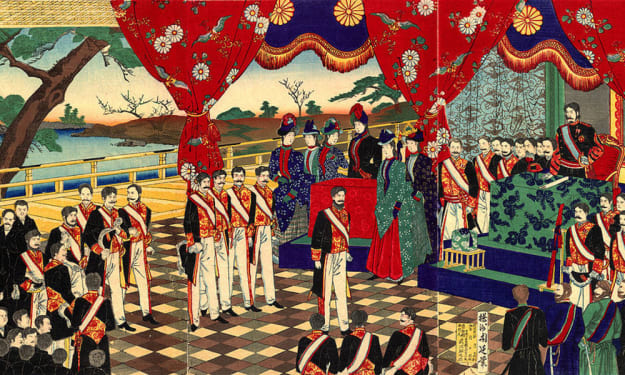The British Empire
The Empire Where the Sun Never Sets

The British Empire, at its height, was the largest empire the world had ever seen, covering approximately a quarter of the earth's land surface and ruling over 458 million people. As such, its power and influence extended across the globe. The British Empire achieved spanned several continents and had a significant impact on the political, economic, and cultural development of the countries under its rule. The origins of the British Empire can be traced back to the early periods of European maritime expansion, but it was during the Age of Discovery in the late 15th and early 20th centuries that Great Britain began to establish a significant presence on other continents.
Various circumstances and factors contributed to the growth of the British Empire, including economic motivations, the search for new trade routes, rivalries with other European powers, and the ideology of imperialism. For the maritime explorations of European countries in search of new trade routes and wealth, English explorers such as John Francis Drake carried out expeditions to North America, the Caribbean, and South America, laying the foundations for British Colonial expansion. Queen Elizabeth I was one of the most famous monarchs and influencers of the British Empire. She reigned as Queen of England and Ireland from 1558 until her death in 1603. During her reign, England became a powerful maritime Empire expanding its overseas territories and facing threats from Spain. Elizabeth I was also a patron of the Arts and culture, and her reign is often known as the Elizabethan era.
One of the main factors driving the growth of the British Empire was trade. Britain was looking to find shorter and safer routes to trade with the Orient, which was a valuable source of spice, silk, and other valuable commodities. The British East India Company was created in 1600 to facilitate trade with India and the Far East. Conflicts with European powers such as Spain and the Netherlands also played an important role in the growth of the British Empire. Frequent wars resulted in the conquest and loss of overseas territories. Overall, Britain emerged as a dominant maritime power. The founding of colonies was a key aspect of the empire's growth. The colonization of North America, such as the founding of Jamestown in 1607 and the arrival of the Pilgrims at Plymouth in 1620, provided Great Britain with a solid base in the region. These colonies provided raw materials and markets for British goods, as well as opportunities for adventurers and people in search of a new life.
The Seven Years War, which took place between the years 1756 to 1763, was a global conflict involving major European powers at the time, including Great Britain, France, Austria, Prussia, and Russia. The war was fought in different theaters of operations on several continents, including Europe, North America, South America, Africa, and Asia. The war was finally upon us at the end with the Treaty of Paris signed in 1763. Great Britain emerged victorious from the war and made important territorial gains, including several colonies in North America and in India.
Slavery was a dark and tragic part of the history of the British Empire for centuries. The transatlantic slave trade and slavery in the British colonies played a significant role in the empire's economy and society. Slavery was an institutionalized race-based practice in which millions of Africans were kidnapped, forcibly transported, and subjected to brutal conditions of forced labor. Transatlantic slave trading involved capturing Africans in their homelands, mainly from West Africa, and transporting them across the Atlantic Ocean to be sold as slaves in the British colonies in America. The slave trade was driven by the demand for labor on the tobacco plantations, cotton, sugar, and other lucrative productions.
The relations between the native peoples of North America and the British colonists initially bullied many indigenous peoples established alliances and trade agreements with British colonists who depended on local knowledge and resources to survive in the new lands. However, as the British expanded their colonies and appropriated more land, conflicts increased, resulting in significant losses for many North American Indian tribes and the decline of their land and resources. In India, the encounter between the native peoples and the British Empire was even more complex. The British East India Company was the main agent of British Colonial expansion in the region. India was a land rich in natural and cultural resources, and the East India Company exploited this wealth for its own benefit.
The arrival of British Colonists in Australia had a devastating impact on the indigenous peoples who had inhabited the continent for thousands of years. British colonization led to forced displacement of Australian aborigines from their ancestral lands and a significant loss of their cultures, languages, and traditions. The official policy of the British government was one of assimilation and protection of aboriginal peoples, but these policies often resulted in violence, exploitation, and discrimination.
In the 19th century, the British Empire reached its peak heyday of the Industrial Revolution that occurred in Great Britain at the end of the 18th century provided the development.
About the Creator
A História
"Hi. My name is Wellington and I'm a passion for general history. Here, I publish articles on different periods and themes in history, from prehistory to the present day.






Comments
There are no comments for this story
Be the first to respond and start the conversation.